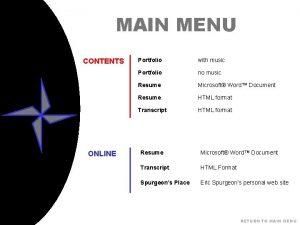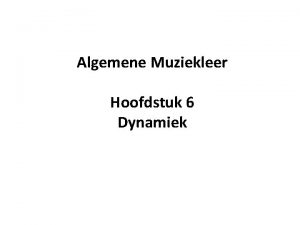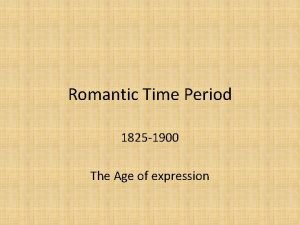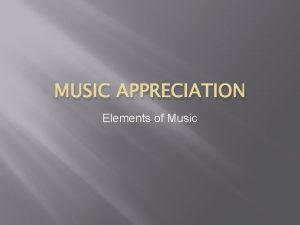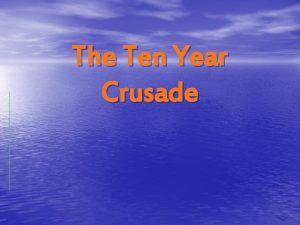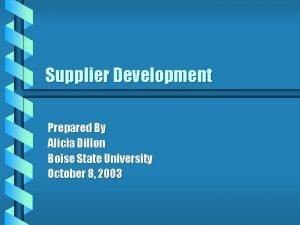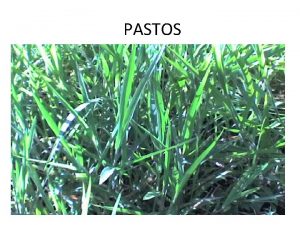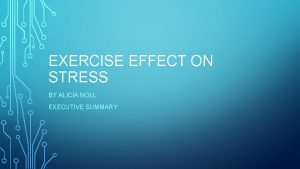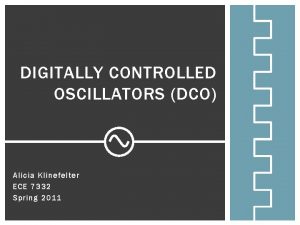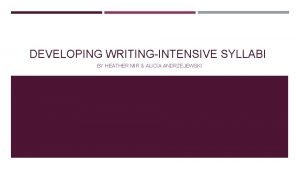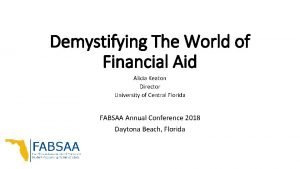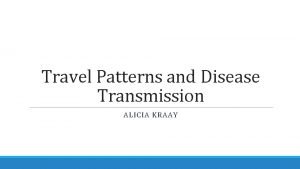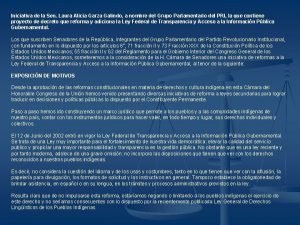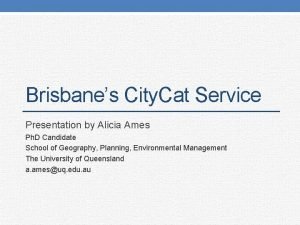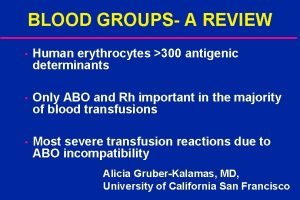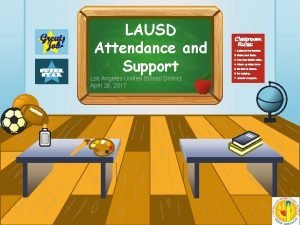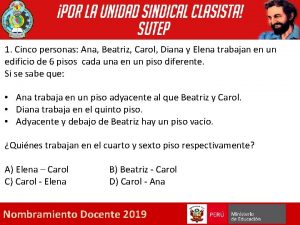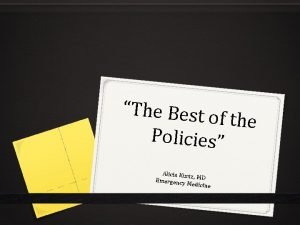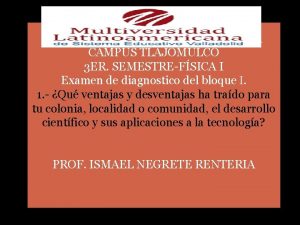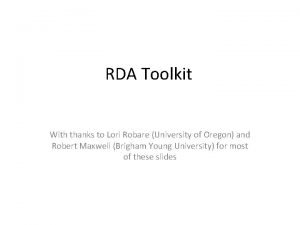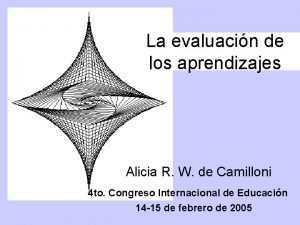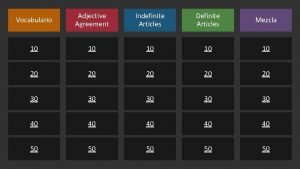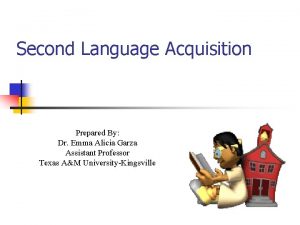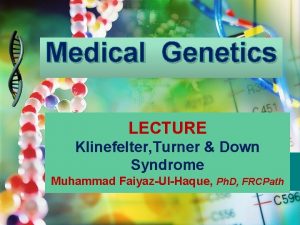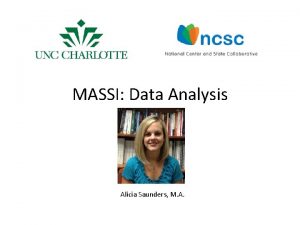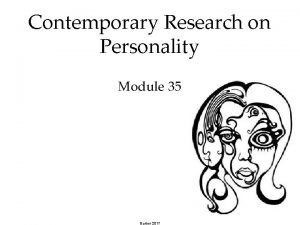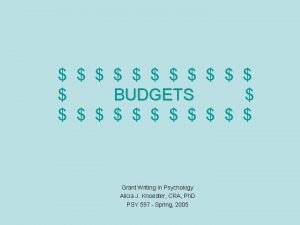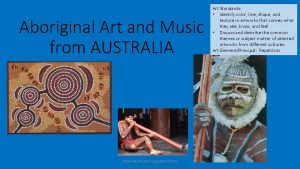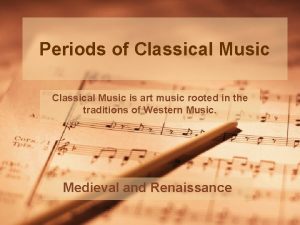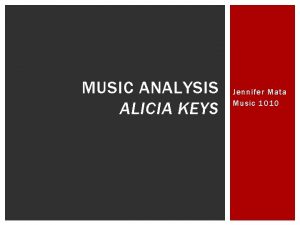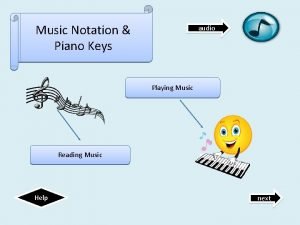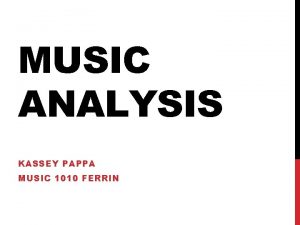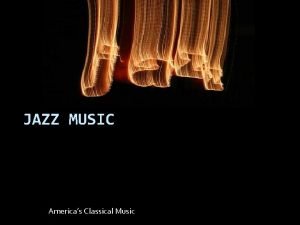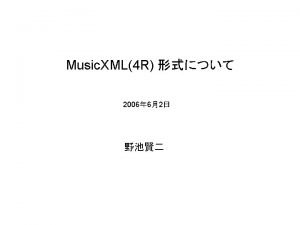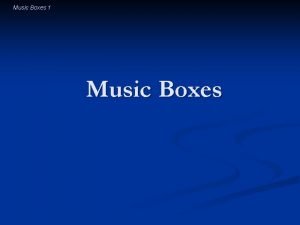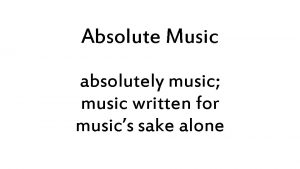MUSIC Alicia de Larrocha Piano THE ART OF


























































![Mahrenholz P 583: “[A] grantor should give a FSD if he intends to give Mahrenholz P 583: “[A] grantor should give a FSD if he intends to give](https://slidetodoc.com/presentation_image_h2/b906fa8238adcbef66c5460e1498f879/image-59.jpg)












- Slides: 71

MUSIC: Alicia de Larrocha, Piano THE ART OF ALICIA DE LARROCHA Performances 1972 -1981 Disc 1: Music of Johann Sebastian Bach & Joseph Hadyn

Review Problem 6 G (Rice) Ramp as “Reasonable Modification” Need to Show: • Necessary to enjoyment of unit • Reasonable • Financial Means to Restore if restoration reasonable (escrow or otherwise)

Review Problem 6 G (Rice) Ramp as “Reasonable Modification” Need to Show: Necessary • Likely not difficult question • Use of front door requires 2 people to assist • Use of rear door requires long trek: downhill + uphill through dark alley + heavy doors + long carpeted hallway

Review Problem 6 G (Rice) Ramp as “Reasonable Modification” Need to Show: Reasonable Arguments re Reasonableness of CC’s Proposed Ramp? • Quality Needed? • Her Proposal re Representation & Z Board?

Review Problem 6 G (Rice) Ramp as “Reasonable Modification” Need to Show: Financial Means to Restore if restoration reasonable. • Assume C & T could afford escrow. • Should restoration (i. e. , removing ramp) be required?

PROBLEM 7 G: CORN

(7 G): “To my only son, Larry, for life, then to Larry's children and theirs. " Larry has two children, Moe and Curly. Larry?

(7 G): “To my only son, Larry, for life, then to Larry's children and theirs. " Larry has two children, Moe and Curly. Larry: Life Estate Moe & Curly?

(7 G): “To my only son, Larry, for life, then to Larry's children and theirs. " Larry has two children, Moe and Curly. Larry: Life Estate Moe & Curly: Vested Remainders (in F. S. ) Subject to Open Use of “subject to open” makes clear that interest is not as certain as a vested remainder usually is. We don’t use phrase with contingent remainder, which is always uncertain.

(7 G): “To my only son, Larry, for life, then to Larry's children and theirs. " Larry has two children, Moe and Curly. Larry: Life Estate Moe & Curly: Vested Remainders (in F. S. ) Subject to Open Larry has another child, Stella has?

(7 G): “To my only son, Larry, for life, then to Larry's children and theirs. “ Larry: Life Estate Moe & Curly & Stella: Vested Remainders (in F. S. ) Subject to Open Curly (C) dies, leaving his wife, Noreen, and a child, Orrin; C's will devises all property to Noreen. What happens to C’s interest?

(7 G): “To my only son, Larry, for life, then to Larry's children and theirs. " Larry: Life Estate Moe & Noreen & Stella: Vested Remainders (in F. S. ) Subject to Open Larry dies. State of the title?

(7 G): “To my only son, Larry, for life, then to Larry's children and theirs. " Larry dies. State of the title? Moe & Noreen & Stella share fee simple absolute (tenants in common). For this course, only need to know that they’d share; don’t need to know term “tenants in common” or what it means.

DEFEASIBLE FEES

DEFEASIBLE FEES Two Relevant Distinctions 1. Automatic termination v. Needs action by future interest holder 2. Who holds future interest? : Grantor v. Grantee

DEFEASIBLE FEES Restatement Terms • FEE SIMPLE DETERMINABLE • FEE SIMPLE ON CONDITION SUBSEQUENT • FEE SIMPLE ON EXECUTORY LIMITATION

FEE SIMPLE DETERMINABLE • OPERATION: Self-Executing (= Automatic Termination)

FEE SIMPLE DETERMINABLE • OPERATION: Self-Executing • KEY LANGUAGE: “So long as”, “While”, “Until”

FEE SIMPLE DETERMINABLE • OPERATION: Self-Executing • KEY LANGUAGE: “So long as”, “While”, “Until” • FUTURE INTEREST: “Possibility of Reverter” (in GRANTOR)

FEE SIMPLE DETERMINABLE EXAMPLE: To Estelle and her heirs so long as asparagus is not grown on the property.

FEE SIMPLE ON CONDITION SUBSEQUENT • OPERATION: Grantor must act

FEE SIMPLE ON CONDITION SUBSEQUENT • OPERATION: Grantor must act • KEY LANGUAGE: – “But if”, “provided that if”, “on condition that if” PLUS – “O may [re]enter and [re]claim the land”

FEE SIMPLE ON CONDITION SUBSEQUENT • OPERATION: Grantor must act • KEY LANGUAGE: “But if”, “provided that if”, “on condition that if” PLUS “O may [re]enter and [re]claim the land” • FUTURE INTEREST: Right of [Re]Entry (in GRANTOR)

FEE SIMPLE ON CONDITION SUBSEQUENT EXAMPLE: To Estelle and her heirs, but if asparagus is grown on the property, I can reenter and claim the land

FEE SIMPLE ON EXECUTORY LIMITATION • OPERATION: Either self-executing or grantee has to act.

Warning: Inconsistency • Textbook says Fee Simple on Executory Limitation terminates automatically (P 580) • For our purposes, assume that sometimes, a Fee Simple on Executory Limitation can operate like a Fee Simple on Condition Subsequent • “To Sonny & his heirs, but if Sonny ever runs for Congress, Cher may enter and take the land. ”

FEE SIMPLE ON EXECUTORY LIMITATION • OPERATION: Either self-executing or grantee has to act. • KEY LANGUAGE: Creates interest in 3 d party if condition violated

FEE SIMPLE ON EXECUTORY LIMITATION • OPERATION: Either self-executing or grantee has to act. • KEY LANGUAGE: Creates interest in 3 d party if condition violated • FUTURE INTEREST: Executory Interest (in 3 d party grantee)

FEE SIMPLE ON EXECUTORY LIMITATION: EXAMPLES • To Estelle and her heirs so long as asparagus is not grown on the property, otherwise to Bob

FEE SIMPLE ON EXECUTORY LIMITATION: EXAMPLES • To Estelle and her heirs so long as asparagus is not grown on the property, otherwise to Bob • To Estelle and her heirs, but if asparagus is grown on the property, Bob can reenter and claim the land

DEFEASIBLE FEES: Restatement Terms • FEE SIMPLE DETERMINABLE (to grantor; automatic) • F. S. ON CONDITION SUBSEQUENT (to grantor; must act) • F. S. ON EXECUTORY LIMITATION (to grantee; either way)

Accessorizing: Defeasible Fees & Matching Future Interests FEE SIMPLE DETERMINABLE & POSSIBILITY OF REVERTER F. S. ON CONDITION SUBSEQUENT & RIGHT OF ENTRY F. S. ON EXECUTORY LIMITATION & EXECUTORY INTEREST

Defeasible Finite Estates: Examples Term of Years on Condition Subsequent: “To Joshua for 20 years, but if he ever passes the bar exam, my heirs can enter & retake. ” Life Estate on Executory Limitation “To Richard for life, but to Chris & his heirs if Chris ever passes the bar exam. ”

Back to CORN: (7 H): Thelma conveys "to Louise for 99 years if Louise so long live. " Louise?

(7 H): Thelma conveys "to Louise for 99 years if Louise so long live. " Louise: Term of years determinable. • Most likely to operate as a life estate, but L might live 99 years. • Used where there is some legal or tax reason to avoid life estate.

(7 H): Thelma conveys "to Louise for 99 years if Louise so long live. " Louise: Term of years determinable. What other interests are there?

(7 H): Thelma conveys "to Louise for 99 years if Louise so long live. " Louise: Term of years determinable. Thelma: Possibility of Reverter plus Reversion = Reversion (Merger)

DOCTRINE OF MERGER If one person becomes the owner of two contiguous interests, the interests will “merge”

DOCTRINE OF MERGER If one person becomes the owner of two contiguous interests, the interests will merge. Example: Eric has a life estate. Katie holds the reversion that follows it. If Eric purchases the reversion from Katie, it merges with his life estate and he will have a fee simple absolute.

DOCTRINE OF MERGER If one person becomes the owner of two contiguous interests, the interests will merge.

Mahrenholz v. County Board DQ 115: Barley

Once Again: IGNORE THE JACQMAINS 1. Delete last paragraph on P 581. 2. Delete last complete paragraph on P 582. 3. Pretend you never heard of the Jacqmains.

Mahrenholz v. County Board MAJOR EVENTS • • • 3/51: Grant to SD#1 2/69: Mrs. H dies intestate; HH sole heir 5/73: Property used for storage only 5/77: HH conveys interest to Ms 9/77: HH releases interest to SD#1

Mahrenholz v. County Board DQ 115: MAJOR EVENTS: FSD +PR • • • 3/51: Grant to SD#1: SD-FSD Hs-PR 2/69: Mrs. H dies intestate; HH sole heir? 5/73: Property used for storage only 5/77: HH conveys interest to Ms 9/77: HH releases interest to SD#1

Mahrenholz v. County Board DQ 115: MAJOR EVENTS: FSD +PR • 2/69: Mrs. H dies intestate; HH sole heir SDFSD HH-PR • 5/73: Property used for storage only? (2 Possibilities: Violation or Not) • 5/77: HH conveys interest to Ms • 9/77: HH releases interest to SD#1

Mahrenholz v. County Board DQ 115: MAJOR EVENTS: FSD +PR 2/69: SD-FSD HH-PR GRANT VIOLATED HH-FEE SIMPLE ABSOLUTE 5/77 HH --> Ms? NO VIOLATION SD-FSD HH-PR 5/77 HH --> Ms?

Mahrenholz v. County Board DQ 115: MAJOR EVENTS: FSD +PR GRANT VIOLATED HH-FS ABSOLUTE 5/77 HH --> Ms? Ms-FS Absolute 9/77 HH release to SD? NO VIOLATION SD-FSD HH-PR 5/77 HH --> Ms? SD-FSD HH-PR 9/77 HH release to SD?

Mahrenholz v. County Board DQ 115: MAJOR EVENTS: FSD +PR GRANT VIOLATED Ms-FS Absolute 9/77 HH release to SD? NO VIOLATION SD-FSD HH-PR 9/77 HH release to SD? Ms - FS Absolute SD - FS Absolute

Mahrenholz v. County Board DQ 115: MAJOR EVENTS: FSCS +RE • • • 3/51: Grant to SD#1: SD-FSCS Hs-RE 2/69: Mrs. H dies intestate; HH sole heir? 5/73: Property used for storage only 5/77: HH conveys interest to Ms 9/77: HH releases interest to SD#1

Mahrenholz v. County Board DQ 115: MAJOR EVENTS: FSCS +RE • 2/69: Mrs. H dies intestate; HH sole heir SDFSCS HH-RE • 5/73: Property used for storage only? (2 Possibilities: Violation or Not) • 5/77: HH conveys interest to Ms • 9/77: HH releases interest to SD#1

Mahrenholz v. County Board DQ 115: MAJOR EVENTS: FSCS +RE 2/69: SD-FSCS HH-RE GRANT VIOLATED SD-FSCS HH-RE 5/77 HH --> Ms? NO VIOLATION SD-FSCS HH-RE 5/77 HH --> Ms?

Mahrenholz v. County Board DQ 115: MAJOR EVENTS: FSCS +RE GRANT VIOLATED SD-FSCS HH-RE 5/77 HH --> Ms? SD-FSCS HH-RE 9/77 HH release to SD? NO VIOLATION SD-FSCS HH-RE 5/77 HH --> Ms? SD-FSCS HH-RE 9/77 HH release to SD?

Mahrenholz v. County Board DQ 115: MAJOR EVENTS: FSCS +RE GRANT VIOLATED SD-FSCS HH-RE 9/77 HH release to SD? NO VIOLATION SD-FSCS HH-RE 9/77 HH release to SD? SD - FS Absolute

Mahrenholz: Summary of Possibilities

Mahrenholz v. County Board DQs 116 -18: Distinguishing Fee Simple Determinable from Fee Simple on Condition Subsequent (More Barley)

Mahrenholz v. County Board The court says (Top para. P 583) : “The type of interest held governs the mode of reinvestment with title if reinvestment is to occur. ” DQ 116. What does the court mean by “reinvestment” ?

DQ 117: (P 584, 3 d full para. ) “In Northwestern Univ. …, a conveyance was ‘made upon the express condition that… Wesley Hospital… shall erect a hospital building on said lot … and that on the failure of … Wesley Hospital to carry out these conditions the title shall revert to Northwestern University. ’ This language cannot be interpreted as creating anything but a fee simple subject to a condition subsequent…” WHY?

DQ 118: In a deleted passage in its discussion of Mc. Elvain, the court says that “as an action in ejectment was brought…, the difference between a fee simple determinable and a fee simple subject to a condition subsequent would have no practical effect …. ” Why does it believe this?
![Mahrenholz P 583 A grantor should give a FSD if he intends to give Mahrenholz P 583: “[A] grantor should give a FSD if he intends to give](https://slidetodoc.com/presentation_image_h2/b906fa8238adcbef66c5460e1498f879/image-59.jpg)
Mahrenholz P 583: “[A] grantor should give a FSD if he intends to give property for so long as it is needed for the purposes for which it is given and no longer, but he should employ a FSCS if he intends to compel compliance with a condition by penalty of a forfeiture. ” - Pretty fine distinction - Court is describing idealized use of the forms - Can use to argue a grant is FSD or FSCS

Use a FSD “to give property for so long as it is needed for the purposes for which it is given and no longer” • To Xavier, so long as he operates his dental practice on the premises. • To Yolanda, so long as she doesn’t remarry. • To Zebulon University, so long as it is used as a research laboratory.

Use a FSCS “to compel compliance with a condition by penalty of a forfeiture. ” • To Xavier, but if the property is ever used for commercial purposes … • To Yolanda, but if alcohol is ever used on the premises … • To Zebulon University for construction of a science building, but if the building is not completed within 5 years or if it ever ceases to be used for educational purposes …

DQ 119 -122 (OATS)

Mahrenholz v. County Board To the Trustees of School District No. 1: "to be used for school purpose only; otherwise to revert to Grantors herein. ” DQ 119: Fee Simple Determinable or Fee Simple on Condition Subsequent? Arguments for FSD?

"to be used for school purpose only; otherwise to revert to Grantors herein. ”: FSD • • “only” suggests automatic condition in 1 st clause “to revert” (v. “may re-enter”) suggests automatic similar grants held FSD Arguments for FSCS?

"to be used for school purpose only; otherwise to revert to Grantors herein. ” FSCS: • 2 clauses usually used for FSCS • No time words • Most states presume FSCS

Mahrenholz v. County Board DQ 120: Under what circumstances might the distinction between a fee simple determinable and a fee simple on condition subsequent be significant?

FSD v. FSCS: Consequences • Transferability after breach (Mahrenholz)

FSD v. FSCS: Consequences • Transferability after breach • Adverse Possession

FSD v. FSCS: Consequences • Transferability after breach • Adverse Possession • Income from land after breach (to grantor if FSD)

FSD v. FSCS: Consequences • Transferability after breach • Adverse Possession • Income from land after breach • Waiver/Estoppel by future interest holder (possible if FSCS)

DQ 120: Why do so many grants fail to indicate clearly which interest is intended?
 El tic de larrocha
El tic de larrocha Music music music
Music music music Terassendynamiek
Terassendynamiek Vocal music of the romantic period
Vocal music of the romantic period Texture refers to loudness and quietness of music
Texture refers to loudness and quietness of music Employs electronic musical instruments
Employs electronic musical instruments Ilocano folk song pamulinawen
Ilocano folk song pamulinawen Alicia busca a dios
Alicia busca a dios Alicia cardell
Alicia cardell Alicia burdess
Alicia burdess Alicia dillon
Alicia dillon Brachiaria ruziziensis
Brachiaria ruziziensis Alicia noll
Alicia noll Digitally controlled oscillators
Digitally controlled oscillators Heather mir
Heather mir Alicia keaton
Alicia keaton Alicia klinefelter
Alicia klinefelter Alicia hoffmann
Alicia hoffmann Alicia kraay
Alicia kraay Alicia sorensen
Alicia sorensen Dr alicia cox
Dr alicia cox Vesuvius refractory products
Vesuvius refractory products Laura alicia garza galindo
Laura alicia garza galindo Alicia fournier vargas
Alicia fournier vargas Alicia ames
Alicia ames Ffp blood type
Ffp blood type Alicia smith missing
Alicia smith missing Lausd attendance policy
Lausd attendance policy Alicia valero
Alicia valero Alicia pieczka
Alicia pieczka Ana beatriz la diferente
Ana beatriz la diferente Reparto proporcional
Reparto proporcional Alicia milner
Alicia milner House on mango street vignette
House on mango street vignette Alicia kurtz
Alicia kurtz Alicia mide el diametro de un tubo de ensayo
Alicia mide el diametro de un tubo de ensayo Alicia pickard
Alicia pickard Jaden smith alicia keys: superwoman
Jaden smith alicia keys: superwoman Cristina villanueva embarazada
Cristina villanueva embarazada Alicia reign family therapy
Alicia reign family therapy Alicia colegrove
Alicia colegrove Adivina como yo me llamo
Adivina como yo me llamo Alicia gehin
Alicia gehin Cuento de nubes alicia morel
Cuento de nubes alicia morel Evaluacion alicia
Evaluacion alicia Alicia compra 35 onzas de arroz a cuántos gramos equivale
Alicia compra 35 onzas de arroz a cuántos gramos equivale A esteban le gusta tocar la guitarra
A esteban le gusta tocar la guitarra Theories of 2nd language acquisition
Theories of 2nd language acquisition Alicia verdugo
Alicia verdugo Alicia burdess
Alicia burdess Alicia klinefelter
Alicia klinefelter Dr alicia saunders
Dr alicia saunders Alicia de almeida
Alicia de almeida Zipaer
Zipaer A psychologist who classifies an individual's personality
A psychologist who classifies an individual's personality Bertha alicia moreno
Bertha alicia moreno Alicia knoedler
Alicia knoedler Alicia hernanz
Alicia hernanz On monday i (have) math and art
On monday i (have) math and art Art attack classical music
Art attack classical music Australian aboriginal art and music
Australian aboriginal art and music Classical art music
Classical art music Hát kết hợp bộ gõ cơ thể
Hát kết hợp bộ gõ cơ thể Bổ thể
Bổ thể Tỉ lệ cơ thể trẻ em
Tỉ lệ cơ thể trẻ em Gấu đi như thế nào
Gấu đi như thế nào Tư thế worm breton
Tư thế worm breton Bài hát chúa yêu trần thế alleluia
Bài hát chúa yêu trần thế alleluia Các môn thể thao bắt đầu bằng tiếng bóng
Các môn thể thao bắt đầu bằng tiếng bóng Thế nào là hệ số cao nhất
Thế nào là hệ số cao nhất Các châu lục và đại dương trên thế giới
Các châu lục và đại dương trên thế giới

